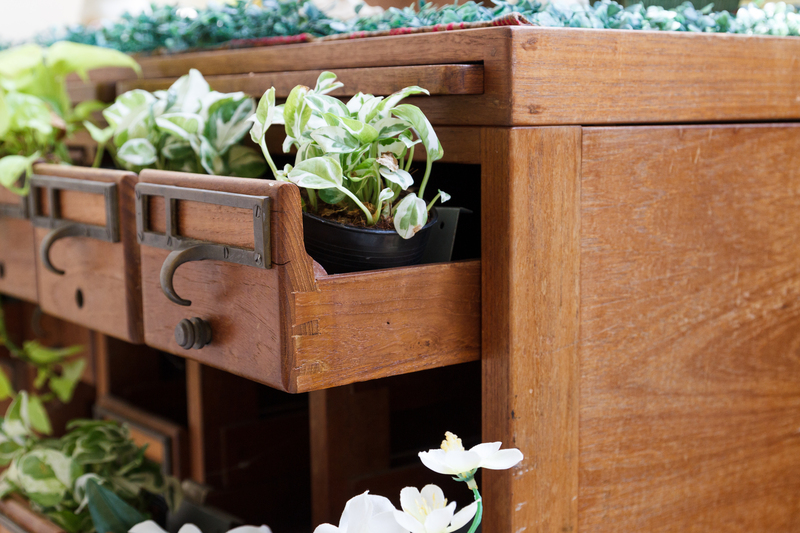
Efficiency Tips: 10 Ways to Reduce Green Waste
In today's environmentally conscious world, finding ways to reduce green waste is crucial to promoting a sustainable future. Not only does minimizing waste enhance the health of our planet, but it also optimizes the efficiency of our daily activities. Here are ten insightful methods to cut down on your green waste effectively, from composting to mindful purchasing habits.
Understanding Green Waste
Before diving into the strategies, it's important to understand what green waste entails. Commonly referred to as organic waste, green waste includes garden clippings, grass cuttings, tree pruning, and other biodegradable garden debris. Efficient management of such waste can greatly benefit the environment by reducing landfill use and improving soil health.
The Impact of Green Waste
Green waste contributes significantly to landfill mass if not managed properly, leading to increased greenhouse gas emissions and resource wastage. By incorporating the following tips, you can play a pivotal role in minimizing the negative environmental impacts of green waste.
1. Embrace Composting
One of the most effective ways to deal with green waste is through composting. This natural process transforms organic materials into rich, soil-like substance that serves as a potent fertilizer. Here's how you can start composting:
- Create a compost bin or pile in your backyard.
- Regularly add kitchen scraps like fruit peels, vegetable waste, and coffee grounds.
- Layer these with green waste like grass clippings and dried leaves.
- Turn the materials periodically to enhance decomposition.
2. Grasscycling
Consider grasscycling, a method of leaving grass clippings on the lawn after mowing. This technique not only reduces green waste but also returns essential nutrients to the soil, promoting healthier lawns with less chemical fertilizer use. Make sure to mow regularly and keep the grass blades short for effective grasscycling.
3. Implement Mulching
Mulching involves spreading organic material over the soil to retain moisture, suppress weeds, and enhance soil fertility. By using garden debris such as leaves and branches as mulch, you can greatly reduce waste. Ensure that the mulch is applied in an even layer for best results.
4. Engage in Vermicomposting
Expand your composting practices by incorporating vermicomposting. This involves using worms to decompose organic waste more efficiently. Red wiggler worms are particularly effective for this purpose. Set up a worm bin and let them transform your green waste into nutrient-rich vermicompost.
5. Adopt a Permaculture Approach
Permaculture encourages designing ecologically harmonious, sustainable landscapes. This approach can substantially minimize green waste by strategically planting perennials and using companion planting techniques. Implementing swales or other water retention methods can further reduce the need for waste-producing irrigation practices.
6. Opt for Native Plants
Native plants are adapted to local climates and soils, requiring fewer resources and maintenance, thereby producing less green waste. Consider landscaping with a variety of native plants to naturally reduce waste and create a vibrant, low-maintenance garden.
7. Practice Proper Pruning
Regular pruning is vital for maintaining healthy plants, but improper techniques can create excess waste. Learn the correct timing and method for pruning different types of plants, trees, and shrubs. This will ensure that you remove only what's necessary while encouraging new growth and reducing waste.
8. Rewild Parts of Your Garden
Rewilding involves allowing parts of your garden to mimic natural habitats. This encourages biodiversity and reduces the need for manicured lawns and frequent maintenance, which can often lead to more green waste.
9. Optimize Your Harvest
Garden management plays a key role in reducing waste. Plan your garden according to the harvest cycles to maximize yield and minimize waste. Encourage the use of all parts of plants, such as leaves and stems, in cooking and decoration to further reduce waste.
10. Mindful Purchasing
Finally, adopt mindful purchasing habits. Buy only what you need, focus on quality over quantity, and choose products with minimal packaging. This not only reduces overall waste but also supports a more sustainable economy.
Conclusion
Effective reduction of green waste is a powerful step towards enhancing environmental health and achieving sustainability. By integrating these ten strategies into your lifestyle, you can significantly cut down your waste footprint while promoting a richer and more efficient ecosystem. Each small change makes a significant impact on the planet, contributing to a more sustainable future for generations to come.
Adopt these methods and empower yourself and your community to move towards a greener, and more efficient way of living. The planet will thank you for it.
